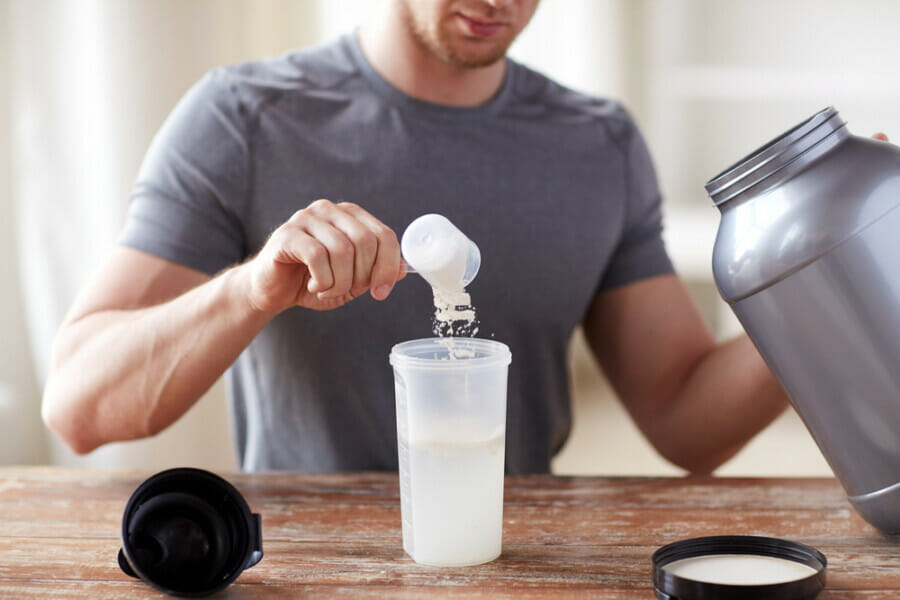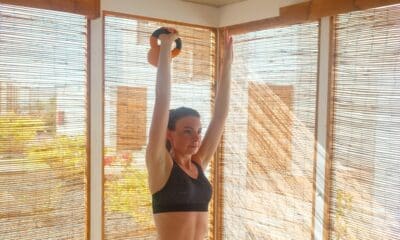Stop Believing These 5 Protein Powder Myths That Could Be Hurting Your Gains
Protein powders have become a go-to for fitness enthusiasts and casual gym-goers alike. Whether you’re looking to bulk up, slim down, or simply maintain a balanced diet, these supplements are often touted as a solution to help you meet your daily protein needs and elevate your energy levels.
But with all the hype, it’s easy to get lost in a sea of myths and misunderstandings surrounding protein powder. The rise of social media and the myriad of “quick-fix” fitness trends can make it challenging to sift through fact and fiction. So how do you find trustworthy information? Before diving into some common misconceptions, let’s take a closer look at what protein powders are and why they might be beneficial.
What Is Protein Powder?
Protein is one of the three essential macronutrients, alongside carbohydrates and fats, that our bodies depend on to function optimally. It plays a vital role in building and repairing tissues, forming muscles and bones, and even supporting immune function and hormone production.
Protein powders, derived from both animal and plant sources, offer a concentrated way to boost your protein intake. They’re like a convenient shortcut for those of us who might have busy lives, dietary restrictions, or specific fitness goals that make getting enough protein from food alone a challenge.
A scoop of protein powder can easily blend into a smoothie, porridge, or even be baked into treats, giving you a versatile option to incorporate more protein into your meals. If you’re a vegetarian, have a demanding work schedule, or are just trying to fit in your daily nutrients, protein powders can be incredibly helpful.
The benefits are plentiful:
– **Supporting Muscle Growth**: If you’re engaging in resistance training, protein is essential for repairing and building muscle. Adding protein powder to your routine can enhance muscle size and strength.
– **Aiding Recovery**: After a workout, protein aids in repairing muscle tissue and can help reduce soreness, getting you back in the game faster.
– **Meeting Dietary Needs**: If your protein requirements are higher due to being an athlete, an older adult, or having dietary restrictions, protein powders can help you meet daily targets more easily.
– **Weight Management**: Protein helps you feel fuller for longer, which can support lean muscle retention and ultimately aid in weight loss.
Understanding protein powder opens the door to better discussions about common misconceptions that surround this popular supplement.
Myth 1: Protein Supplements Are Only for Bodybuilders
Why Does This Myth Exist?
The image of the classic bodybuilder, shaking up a protein shake post-workout, has cemented the belief that protein supplements are exclusively for those looking to bulk up. It’s easy to see how this would push many people out of the conversation, especially if they don’t identify as a “serious” athlete.
The Truth
Though whey protein—often favored among bodybuilders—can support significant muscle growth, it’s not limited to just that crowd. Building muscle effectively requires more than just protein; it involves commitment to a structured training program and proper calorie intake. So, if you’re someone who enjoys regular workouts but doesn’t necessarily aim for a bulky physique, you can still benefit tremendously from protein powders to maintain lean muscle and enhance recovery.
Myth 2: Women Shouldn’t Use Protein Powders
Why Does This Myth Exist?
Cultural perceptions and marketing strategies have frequently painted protein supplements as a “male” product, thus fostering the idea that women don’t require extra protein or that consuming it may lead to unwanted bulk.
The Truth
The reality is that both men and women have similar basic protein needs. Women can absolutely benefit from protein powder—especially if it fits well with their diet and lifestyle—without worrying about gaining an excessive amount of muscle. Remember, protein powder is just a nutrient-dense food; its effects on muscle gain depend heavily on your training and dietary strategies, not your gender.
Myth 3: Protein Powder Leads to Weight Gain
Why Does This Myth Exist?
This misunderstanding likely comes from the association of protein powders with muscle-building and weight gain supplements. Many people assume that adding supplements to their diet equals more calories and therefore more weight.
The Truth
Protein powder alone won’t cause weight gain; it’s all about how you integrate it into your overall diet. If you add protein shakes to an already calorie-surplus diet, weight gain can occur. However, used wisely, protein powder can help with recovery and appetite control, assisting in weight management by making you feel satisfied longer.
Myth 4: Protein Powder Is Bad for Your Gut Health
Why Does This Myth Exist?
Some individuals experience digestive discomfort after using protein powders, which can create the misconception that these supplements are inherently harmful to gut health. The culprit is often specific ingredients like lactose in whey or artificial preservatives, not protein itself.
The Truth
For the majority of people, protein powder doesn’t damage gut health. If you find that you experience issues like bloating, it might be related to individual sensitivities rather than the protein. For those lactose intolerant, plant-based and clear protein options are typically easier on the stomach.
Myth 5: Plant-Based Protein Powders Are Inferior to Whey
Why Does This Myth Exist?
Whey protein has long been viewed as the gold standard due to its comprehensive amino acid profile and quick absorption. This has led to the undeserved assumption that plant-based options aren’t capable of delivering similar benefits.
The Truth
While whey is a complete protein, numerous modern plant-based blends are designed to provide all essential amino acids and can effectively support muscle growth and recovery when incorporated into a diverse diet.
Navigating these misconceptions can feel overwhelming, but arming yourself with solid information is a good start. As with any health-related topic, connecting with qualified professionals—like certified nutritionists—can provide tailored guidance that fits your unique needs and fitness goals. Remember, when it comes to fueling your body, it’s about finding what works best for you.

















